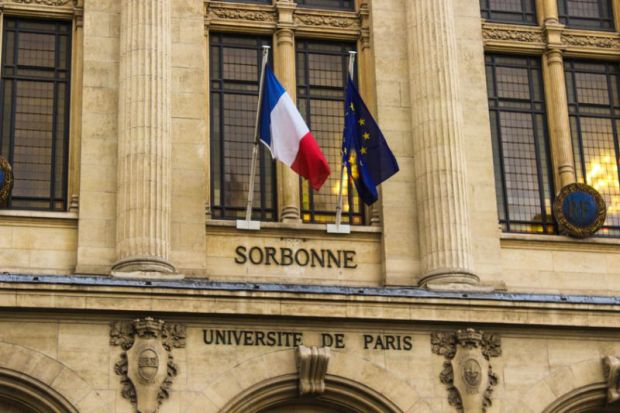The huge French market for internationally mobile African students – and the desire for France to target even anglophone higher education markets in Africa – has been showcased at an event in Paris.
Campus France is the national agency, with offices in 120 countries, responsible for “the promotion of higher education, international student services and international mobility”. In 2013, according to one of its recent reports, 373,000 Africans were seeking higher education outside their home countries – more than a tenth of the total cohort of internationally mobile students. Fifty-four per cent of them came from francophone countries.
While France is the third most popular destination, after the US and the UK, for all internationally mobile students, it is by far the destination of choice for African students, taking in more than 92,000 or 26.5 per cent of the total. Ninety-eight per cent of the African students in France come from countries where French is spoken. For eight African countries starting with Algeria (85 per cent), Madagascar (74 per cent) and Senegal (67 per cent), half or more of the mobile students opted for France.
For Rencontres Campus France 2016, therefore, held in Paris from 7 to 9 November, the focus was firmly on sub-Saharan Africa. A number of African higher educational ministries and even individual universities were represented, along with Campus France staff from all over the world, African ambassadors to France and French ambassadors to francophone Africa.
The event was opened for the first time by the French minister for foreign affairs and international development, Jean-Marc Ayrault, who said that France’s internationalisation strategy in higher education had to be “much stronger, more efficient and more effective”.
He stressed that his country was “ready to participate in training the elite of tomorrow” but needed to streamline its visa policies and to “address the linguistic question” by offering more courses in English. He had himself visited both Kenya and Tanzania.
At a session later in the day, the French ambassador to Nigeria, Denys Gauer, offered another sign of a desire to win greater market share in anglophone Africa, when he expressed his disappointment that such a small proportion of Nigerian students (419 in the academic year 2015-16) had chosen France. “There is a political goal to collaborate with the whole of Africa”, he added, “but that is not reflected at all in student flows”.
Later presentations examined the attitudes of foreign students in France, the international alumni network open to anyone who has studied in a French university and a range of programmes to promote entrepreneurship among African graduates of French universities.
Among those speaking was Aïssata Diakité, who came to Campus France with her plans to set up a business selling smoothies in her native Mali and to “support women’s cooperatives in the food sector”. Despite having to import even the labels and sort out her own electricity supply, her company – Zabbaan Holding – was successfully launched earlier this year.




